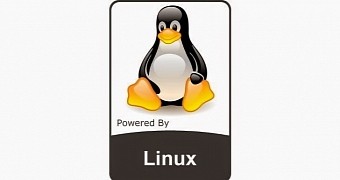Two new Linux kernel releases arrived this past weekend, for the Linux 4.8 and long-term supported Linux 4.4 series, sporting pretty much the same improvements and bug fixes.
Linux kernels 4.8.16 and 4.4.40 LTS are out, as announced by renowned kernel developer Greg Kroah-Hartman, and they're here three weeks after the release of the previous maintenance updates, namely Linux 4.8.15 and Linux 4.4.39 LTS, due to the obvious Christmas and New Year's holidays.
Looking at the appended shortlogs, we can't help but notice that these new point releases bring quite some changes. Linux kernel 4.8.15 is the bigger one, shipping with a total of 95 files changed, with 956 insertions and 490 deletions, while Linux kernel 4.4.40 LTS changes only 67 files, with 632 insertions and 256 deletions.
However, the changes aren't so different from the Linux 4.9.1 kernel patch, which was also released this past weekend for those who want to finally make the switch from the Linux 4.8 series. The most notable major updates are for the Btrfs, CIFS, and EXT4 filesystems, but also for F2FS and XFS.
ARM64 gets some minor improvements in Linux 4.8.16
As there's no new kernel update without some updated drivers, both Linux 4.8.16 and 4.4.40 LTS include important changes to the CPUFreq governor, NVM Express (NVMe) support, the watchdog timer, the Xen hypervisor, as well as various USB, MD, CLK, and crypto devices. A few important ALSA sound system fixes are also present.
Other than that, it looks like the ARM64/AArch64 support got a couple of improvements in the Linux 4.8.16 kernel, and both releases offer various other mm, ARM, and core kernel enhancements. You can download the source archives of Linux kernel 4.8.16 and Linux kernel 4.4.40 LTS right now from our website.
We always recommend running the newest Linux kernel in your operating system, so don't hesitate to update to these new versions as soon as they're available in the stable software repositories of your favorite GNU/Linux distribution. If possible, you should move to the Linux kernel 4.9 series now that it's been officially marked as stable.

 14 DAY TRIAL //
14 DAY TRIAL //